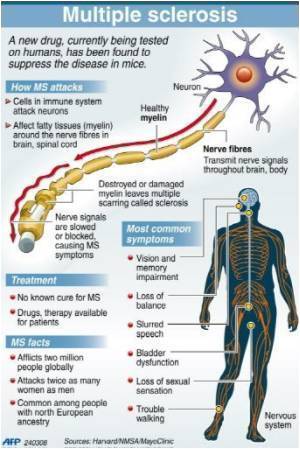Scripps researchers have identified a compound that effectively inhibits the effects of multiple sclerosis in animal models.

"This is a novel drug that works effectively in animal models with few side effects," said Tom Burris, Ph.D., a professor in the Department of Molecular Therapeutics at Scripps Florida who led the study, which was a multidisciplinary collaboration with scientists including Patrick Griffin, William Roush, and Ted Kamenecka of Scripps Research, and Paul Drew of the University of Arkansas for Medical Sciences. "We have been involved in several discussions with both pharmaceutical and biotechnology firms who are very interested in developing it further."
A lengthy process of drug development and review is required to ensure a new drug's safety and efficacy before it can be brought to market.
"This impressive multidisciplinary team has used a combined structural and functional approach to describe a class of molecules that could lead to new medicines for treating autoimmune diseases," said Charles Edmonds, Ph.D. who oversees structural biology grants at the National Institutes of Health. "Breakthroughs such as this highlight the value of scientists with diverse expertise joining forces to solve important biological problems that have the potential to benefit human health."
Targeting Specific Receptors
For the past several years, Burris and his colleagues have been investigating small-molecule compounds that affect particular disease-related receptors (structures that bind other molecules, triggering some effect on the cell). In particular, the scientists have been interested in a pair of "orphan nuclear receptors" (receptors with no known natural binding partner) called RORα and RORγ involved in both autoimmune and metabolic diseases.
Advertisement
"If you eliminate TH17 cell signals, you basically eliminate the disease in animal models," Burris said. "Our compound is the first small-molecule orally active drug that targets this specific cell type and shuts it down. Once SR1001 is optimized, chances are it will be far more potent and effective."
Advertisement
Source-Eurekalert













